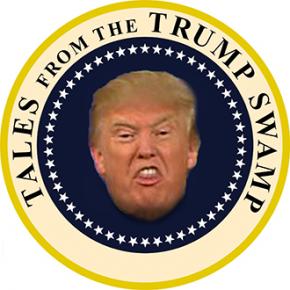Trump takes aim at libraries
Boston librarian explains what the deep cuts to libraries in Trump's budget will mean to working-class communities.
DONALD TRUMP'S "America First" budget proposal for 2018 puts working-class communities last, calling for the elimination of several federally supported, independent, cultural institutions, including the Institute of Museum and Library Services (IMLS).
IMLS helps fund literacy and technology programs in 123,000 libraries and about 35,000 museums across the U.S.--all with a budget of just $230 million, which is about .05 percent of the entire federal budget.
IMLS is currently funded through a continuing resolution that expires on April 28, 2017, and additional legislation must be passed for funding to continue.
If Trump's budget passes, the cuts will have a devastating impact on those who utilize public libraries in rural areas and poor urban communities in particular.
IMLS funds libraries through the Library Services and Technology Act (LSTA) Grants to States program. It allots a base amount of $680,000 to each state plus an additional amount based on population.
The money goes toward library programming directed at underserved patron populations--teens, senior citizens, immigrants, adults learners for instance. There is also a focus on the maintenance and expansion of technology in libraries.

For many rural populations, the library is the only place to access the internet. In an official statement against Trump's America First budget, IMLS director Kathryn Matthews explained:
We've invested in rural and smaller communities by supporting basic infrastructure and by developing libraries as local community hubs for broadband connectivity and digital literacy training--helping many residents gain job-related skills and, in many cases, find employment...our grants and programs support libraries and museums as essential contributors to improving Americans' quality of life.
FOR URBAN areas and poorer towns in states like Massachusetts, IMLS money goes toward projects that enhance access to information for working-class families who aren't necessarily connected to universities and the databases they may use.
Things like the Commonwealth Catalog, a system that supports interlibrary loan throughout the state, and the Digital Commonwealth, an organization that houses digitized material from libraries, museums and historical societies from around the state, provide access to faraway materials to anyone with a library card and internet access.
Furthermore, families that can't afford to place their kids in summer programs look forward to the Statewide Summer Library Program, which helps build reading skills and interest during summer break through prizes and activities at the library.
Despite the fact that IMLS provides the only federal funding for libraries, it's regularly threatened with cuts or elimination. The 2017 budget was actually slightly increased, a small relief from the deep and destructive cuts suffered in 2012 and 2013 under the Obama administration. Just in the last fiscal year, Sen. Paul Ryan proposed getting rid of IMLS entirely.
The way the money is distributed to state entities also undermines libraries' sustainability. State governments can choose to spread the money to localities through state programs or competitive grants. This is partially why public libraries often run on shoestring budgets. Government funding, which could be the most stable, is at best inconsistent.
A look at where Trump's budget plan proposes cuts and where it proposes increases underlines how the administration prioritized corporate profits over the resources workers need. It's the only way to explain why libraries are being forced to sacrifice with a minuscule budget while the Defense Department could see a 9 percent increase.
EVEN BEFORE these proposed budget cuts, librarians have been on the front lines of the fight against Trump's attacks.
The most visible and expansive mobilization has been against the administration's ban on travelers from Muslim-majority countries, in which school and public librarians posted signs that read "All are welcome" or "Libraries are for everyone" on their front doors or information desks.
Public librarian Rebecca McCorkindale created these images which spread like wild fire internationally on library social media.
"Libraries are the heart of a community, for anyone and everyone that lives there, regardless of their background," explained McCorkindale, who is assistant library director at the Gretna, Nebraska, public library.. "And so we strongly believe that libraries are not neutral. We stand up for human rights."
This is a growing sentiment among librarians. And of course, news about the potential cut in federal funding for libraries has again activated library professionals who are trying all the more to organize librarians.
The hashtag #LibrariesResist has become a way for librarians to share resources for patrons facing discrimination--from immigrants to trans youth--and to connect people with activist organizing.
While much of the calls to action around the cuts to IMLS have been appeals to contact legislators, the fact that librarians see it as part of their actual job to resist Trump's attacks on the most vulnerable in this society is encouraging.
The resistance to Trump in broader society is being reflected in the libraries, and this can have a real impact on library worker's ability to demand funding for these necessary services, beyond the fiscal budget vote.
The Trump administration has something to fear in the potential alliance of librarians, library workers and the communities they serve.



